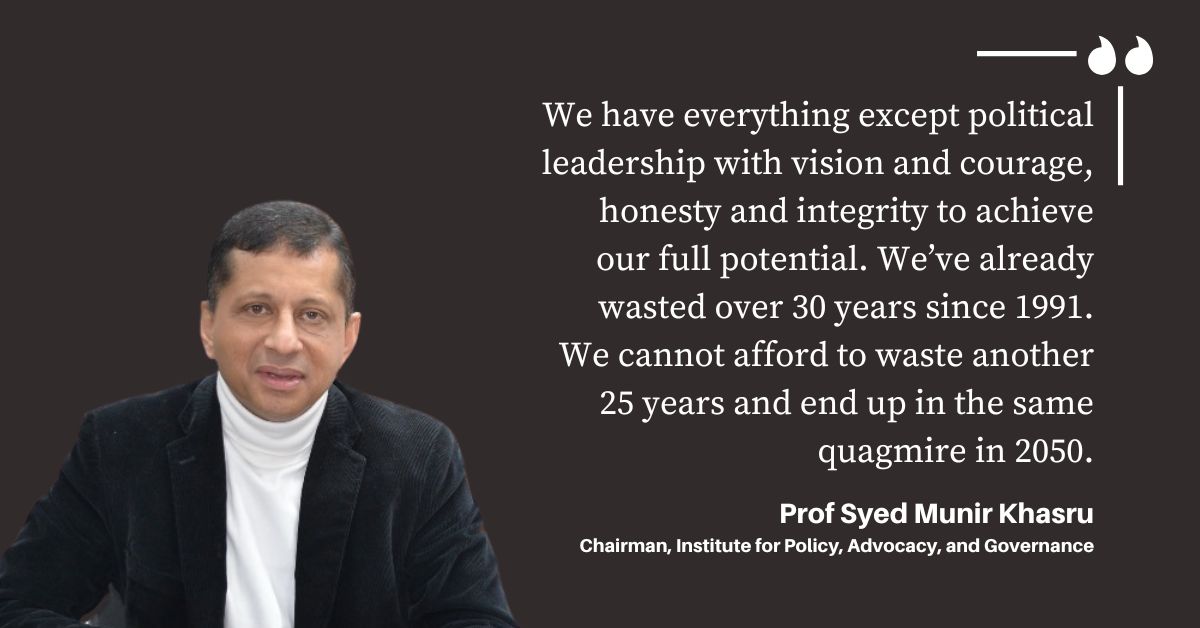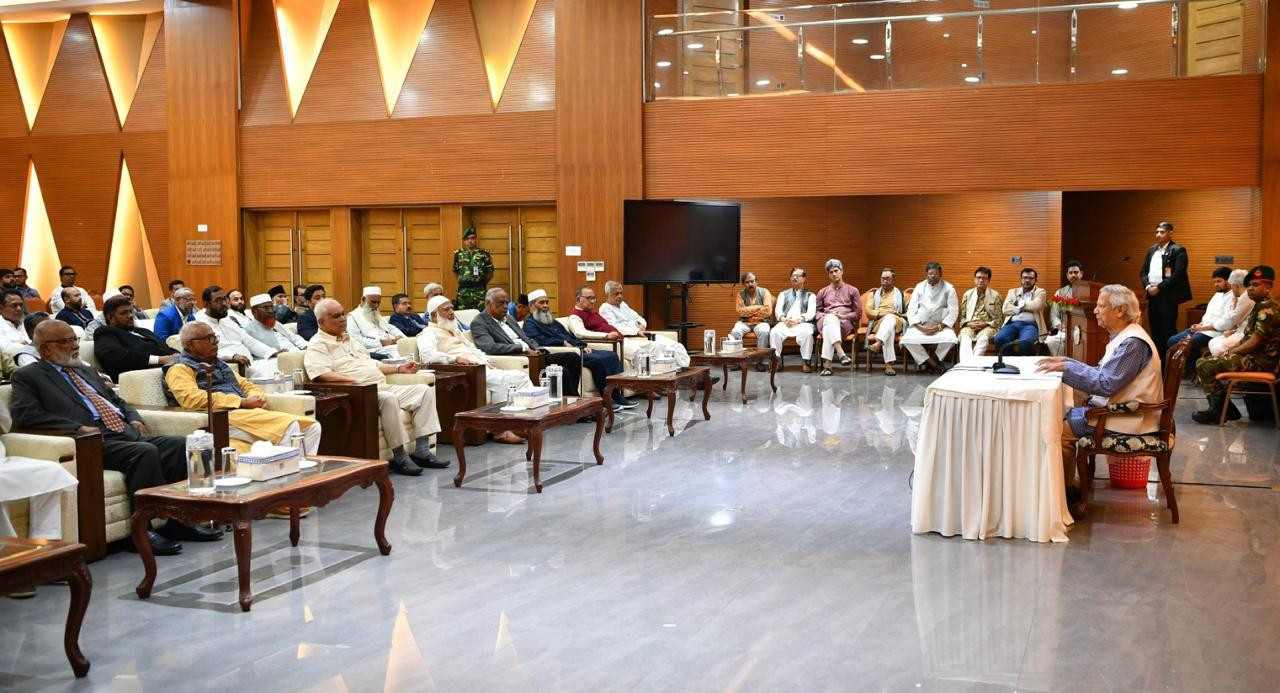When power shifts but patterns remain

Groucho Marx once quipped, "Politics is the art of searching for problems, searching for them everywhere and finding fault with them." His words, laced with wit, expose a profound truth about governance: politics often becomes more about pointing fingers than about solving real problems. The very essence of leadership, which should be about forging progress and alleviating suffering, often degenerates into cycles of retribution. Nowhere is this more evident than in the developing world, including Bangladesh, where the transition of power is frequently hailed as a revolution but ultimately proves to be little more than a repetition of old patterns under new banners.
German philosopher Friedrich Nietzsche warned of the dangers of becoming what one opposes. He wrote, "Whoever fights monsters should see to it that in the process he does not become a monster." Yet, in many postcolonial states, revenge politics has become an institutionalised practice. New regimes expend their energy correcting—or rather, avenging—the past, rather than envisioning the future. This inability to break free from the grip of history is why change, despite its grand proclamations, often remains an illusion.
History is replete with examples of political transitions that promised transformation but instead entrenched division. The French Revolution (1789-1799), which heralded "liberté, égalité, fraternité," quickly descended into the Reign of Terror, where revolutionaries became executioners, and old injustices were replaced by new atrocities. The Russian Revolution (1917) overthrew the Tsarist autocracy, only to replace it with the oppressive Soviet regime under Joseph Stalin. In both cases, the so-called new orders proved as intolerant and repressive as their predecessors.
In modern developing nations, political turnovers occur under similar circumstances. A government falls, and its successor, instead of breaking the mould, simply reverses the roles of victim and oppressor. Those once persecuted now become the persecutors. Trumped-up cases are lodged, critics are silenced, and rhetoric of annihilation floods the airwaves. "Break them," "crush them," "set fire"—these slogans, once hurled against the ousted regime, are now repurposed against the newly defeated opposition. But if the language remains the same, can we truly call it change?
A wise observer of history must ask: what differentiates genuine change from mere reshuffling? True transformation demands structural, ideological, and cultural shifts. Yet, most political transitions in the developing world focus on superficial alterations while leaving the fundamental issues untouched. Institutions remain weak, governance remains personalised, and power continues to be wielded as an instrument of personal vengeance rather than national progress.
Consider the Arab Spring. From Tunisia to Egypt, people demanded democracy, justice, and dignity. The initial euphoria of overthrowing dictators gave way to political chaos, military coups, and, in some cases, the return of authoritarian rule. In Egypt, Hosni Mubarak was toppled, Mohamed Morsi taking his place, only to be ousted by another authoritarian leader, Abdel Fattah el-Sisi. The lesson? Revolutions or uprisings without structural reforms merely rearrange the pieces on the board without changing the game itself.
Hans Christian Andersen's timeless tale, "The Emperor's New Clothes," serves as an apt metaphor for the political deceptions of our time. In the story, swindlers convince a vain emperor that they have woven an extraordinary fabric that is invisible to fools. Fearing the label of stupidity, his courtiers and subjects pretend to admire his non-existent attire until a child, unburdened by fear, exclaims, "But he isn't wearing anything!"
This mirrors the political theatre in developing nations. Leaders proclaim unprecedented change, supporters applaud, and intellectuals, fearing repercussions, validate the illusion. Yet, for the common citizen suffering under the same corruption, intimidation, and inefficiency, the emperor remains as naked as ever.
Some leaders have defied this cycle. Nelson Mandela, upon leading South Africa out of apartheid, chose reconciliation over revenge. Unlike many leaders who succumb to the temptation of political purges, Mandela understood that sustainable change required building bridges rather than burning them. Similarly, Germany, after the devastation of World War II, did not merely replace one ruling elite with another. It engaged in Vergangenheitsbewältigung—a conscious effort to come to terms with its past. Unlike many postcolonial states that continuously blame predecessors while repeating their mistakes, Germany systematically addressed its historical wrongs, building institutions that would prevent their recurrence.
If the developing world is to break free from this cycle, there must be a fundamental shift in how political change is understood and implemented. Rather than viewing transitions as opportunities for retribution, they must be seen as moments for institutional and cultural reformation. Strong institutions must be built to uphold the rule of law impartially, rather than serving as tools for political vendettas. Leaders must rise above personal grievances and cultivate an ethos of governance that prioritises national progress over partisan revenge. Citizens must demand accountability and refuse to be deceived by grandiose rhetoric. Political movements must focus on economic development, social harmony, and long-term policy solutions instead of short-term political gains. Only by ensuring these changes can a nation truly transform, rather than simply reshuffling the players while the game remains unchanged.
Change is not a word; it is an action. If one tyranny merely replaces another, if persecution merely shifts hands, if slogans remain the same, then the cycle has not been broken. As Jean-Baptiste Alphonse Karr said, "Plus ça change, plus c'est la même chose"—the more things change, the more they remain the same. The challenge for developing nations is not to merely replace rulers but to redefine leadership. Until then, we remain trapped in the emperor's illusion, clapping for invisible robes while reality stands stark naked before us.
H. M. Nazmul Alam is an academic, journalist, and political analyst. He can be reached at nazmulalam.rijohn@gmail.com.
Views expressed in this article are the author's own.
Follow The Daily Star Opinion on Facebook for the latest opinions, commentaries and analyses by experts and professionals. To contribute your article or letter to The Daily Star Opinion, see our guidelines for submission.




 For all latest news, follow The Daily Star's Google News channel.
For all latest news, follow The Daily Star's Google News channel. 



Comments